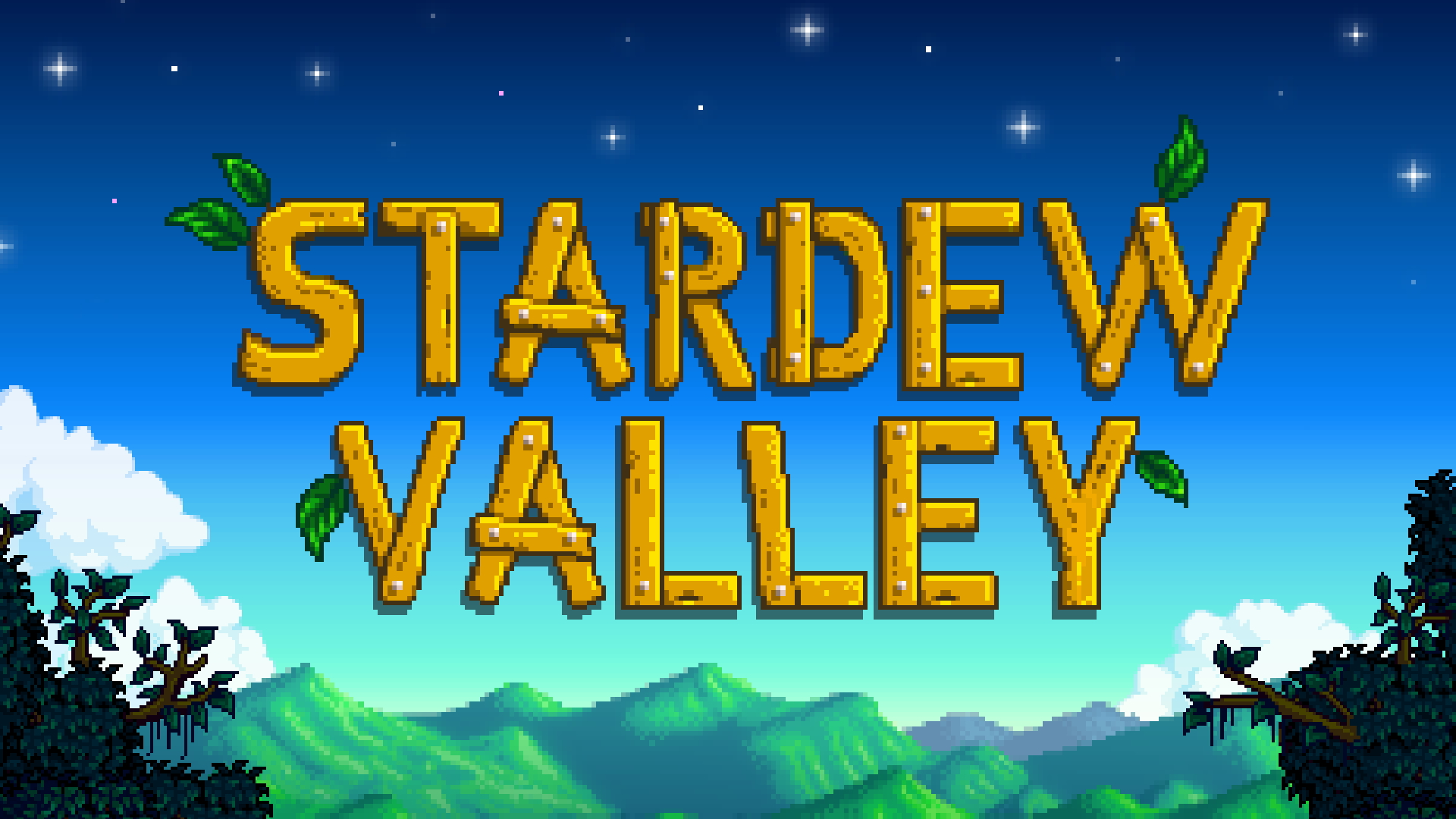Stardew Valley is a simulation role-playing game developed by Eric “ConcernedApe” Barone. The 2016 game introduces a character who loses sight of their dreary corporate lifestyle and moves to a farm that they inherited from their grandfather in a place called Stardew Valley. This was my first time playing and I wasn’t able to dedicate the time I believe this game deserved – I only got to play until around Day 8 or 9. 🙁
At first glance, the pixel graphic aesthetic was very cozy and comforting, the music was tight and cohesive, and the dialogue seemed meaningful. My general routine looked like this for the first few days:
- Work on my farm before all the shops open – clear the stones and grass, chop the trees, till the soil, plant seeds if I have them
- Go to town to talk to people and explore the area
- Try to hit all the stores I want/need to hit (Willy’s Fish Shop, Pierre’s General Store)
- Go back to work on the farm after majority of stores close ~4-5pm
- Sleep once I run out of energy
I initially was very fixated on trying to solidify a routine and learn how to best maximize my time and energy. I was definitely caught up in that capitalist + minmax mindset of trying to milk out as much as I could quantitatively. I focused on the profit numbers shown to me at the end of the day; I also took up requests and was very fixated on completing them (e.g. staying out fishing until I caught the one fish that Willy was looking for).
And then I started thinking something along the lines of: “Maybe let’s use this game as an exercise to not lean into that capitalist mindset for once.” Seeing numbers growing has become an important part of what I prioritize sooner or later within a game, whether I like it or not (e.g. damage numbers made me a meta-slave for certain games and I hate admitting it) so I was adamant on trying to fight against that after around half an hour of playing. Immediately, the way I played through the days in Stardew Valley lost structure. It was disorienting at first since I eliminated a very easily gaugeable, structured goal and fought against a more natural instinct, but I started to find catharsis in it eventually. After all, wasn’t my character trying to escape the clutches of structured corporate life? In a funny little way, I felt that I was honoring my character’s needs and shift in lifestyle by parting from my usual playstyle.
I started to feel less pressed about things. Should I stay on the farm all day and not talk to people? Sure, they’ll be in town tomorrow. My character’s social battery is a little spent anyway (I was projecting). Out of energy at 3pm? No biggie, let’s just go to bed. I think the knowledge that time will continue passing even if I’m not doing something “important” and that the days will not “wait” for me made me feel a little helpless, but in a strangely relieving way. It was a gently humbling experience – an interesting cognitive shift in knowing that my character is just as significant and insignificant as the other people in town.
Also no one told me there was a dungeon in Stardew Valley… I stopped playing shortly after discovering it because I was getting tired, but I could definitely see myself spending a lot of time there. My penchant for hack-and-slash dungeon crawlers would definitely have a field day there (*jabs finger at Hades* I blame you).
Though I did not get to play much of Stardew Valley and was still in the midst of figuring out my routine (or lack of) in the game, I can definitely see the reason why some of my peers are neck-deep in it. It’s cozy and unconventionally cathartic in the sense that the notion of the time continuing to pass regardless of what I do makes me feel less important: there is less pressure of being the “main character” and being perceived at all times. If I want to sequester myself on my farm and sleep at 3pm, the game will not punish me nor will I feel guilty about it. The game also does a wonderful job of representing queer and nonbinary relationships, as well as incorporating more female-gaze-y components and feminist values like emotional connection, gift giving, and reciprocity.



Hey Izzy! I definitely relate to your reflection about intentionally trying not to min/max the game; it took me a while to come around to it. If I continued to play it with a similar mindset that I have for other games (just as you did), I probably would be more stressed. It is interesting to see that we have to be intentional about choosing how we play the game, in order to get the experience that we want out of it.
Hi Izzy, I can definitely empathize with your minmax approach — given that that’s how I’ve always approached resource management in games, it’s a pattern I find myself falling into quite often. Slowing down and appreciating all the different things you could without the ulterior motive of minmax-ing resources was definitely a way that helped me enjoy the game!